South Asia Program
Over Half of The World's Hungry are Asians

Prabhu Pingali, SAP
“The primary problem has been access to food due to loss of employment, primarily among low-wage migrant workers who were forced to return to their home villages,” says Prabhu Pingali, director of the Tata-Cornell Institute.
Additional Information
China's Power Shortages, Housing Struggles Put the Brakes on Its Economy

Eswar Prasad, SAP
“China’s growth momentum has taken a sharp hit from the combination of deleveraging, squeeze on property speculation, and energy shortages,” says Eswar Prasad, professor of economics and international trade policy.
Additional Information
Berger International Speaker Series with Dr. Dipali Mukhopadhyay: Afghan State-building in the Shadow of Counterterrorism
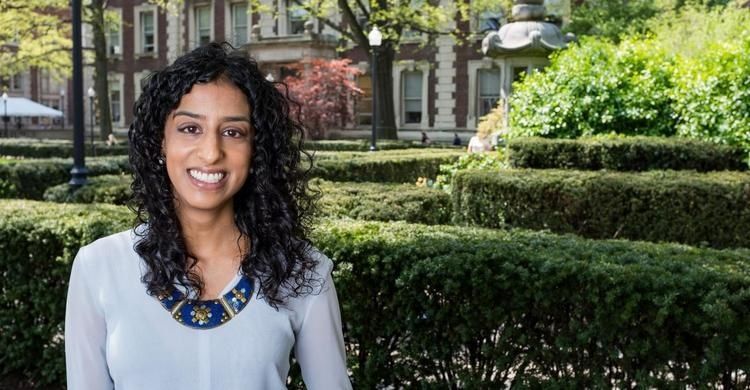
November 2, 2021
12:15 pm
Landis Auditorium, Myron Taylor Hall, Room 184
You are invited to join us for a lunchtime discussion on Tuesday, November 2, 2021 from 12:15 to 1:15 p.m. in Room 184 – Landis Auditorium – Myron Taylor Hall with Dr. Dipali Mukhopadhyay, Associate Professor in the Global Policy Area at the University of Minnesota’s Humphrey School of Public Affairs.
Dr. Mukhopadhyay will present her talk, “The Palace Politics of ‘Precarious’ Sovereignty: Afghan State-building in the Shadow of Counterterrorism.” Professor Avani Mehta Sood, Visiting Professor of Law at Cornell University, will moderate the event.
Sandwich coupons for Copper Horse Coffee in the Law School Commons will be distributed to attendees.
Please RSVP to the event here: https://cornell.ca1.qualtrics.com/jfe/form/SV_9vN0nhOvrQwYPuC
About the Seminar:
The Palace Politics of "Precarious" Sovereignty: Afghan State-building in the Shadow of Counterterrorism
Since September 11, 2001, the United States and its allies have involved themselves in matters of governance abroad, not out of an altruistic commitment to the spread of liberal democracy, but, rather, as a function of concerns about the presumed nexus between weak statehood and globalized violent extremism. Those campaigns – of which Afghanistan is the paradigmatic case – have proved profoundly challenging, their failings often ascribed to the weakness and corruption of new regimes meant to usher in stability, democratic politics, and liberal governance. I employ the case of the post-2001 Afghan government, the first object of intervention in the so-called war on terror, to challenge this near-axiomatic characterization. I argue that state-building in the shadow of counterterrorism is an unprecedentedly constricting form of intervention in which a regime’s venality is not a bug but, rather, a feature that stems from the exceptional limits interveners place on the very regime they claim to embolden. The recent calamitous withdrawal of the last of U.S. forces from Afghanistan - and its aftermath - can be understood as a function of this neo-imperial form of intervention as well.
About our Speaker:
Dipali Mukhopadhyay is Associate Professor in the global policy area at the Humphrey School of Public Affairs at the University of Minnesota. Her research focuses on the relationships between political violence, state building, and governance during and after war. She is currently serving as senior expert on Afghanistan for the U.S. Institute of Peace and is an affiliated scholar with Columbia University's Saltzman Institute of War and Peace Studies. She is also the Vice President of the American Institute for Afghanistan Studies. Mukhopadhyay is the author of Good Rebel Governance: Revolutionary Politics and Western Intervention in Syria (Cambridge University Press, forthcoming) with Kimberly Howe, and Warlords, Strongman Governors and State Building in Afghanistan (Cambridge University Press, 2014).
Additional Information
Program
Einaudi Center for International Studies
South Asia Program
Natural Monopoly: Colonial Science, Orders of Access, and the East India Company in London, 1757-1833, by Jessica Ratcliff
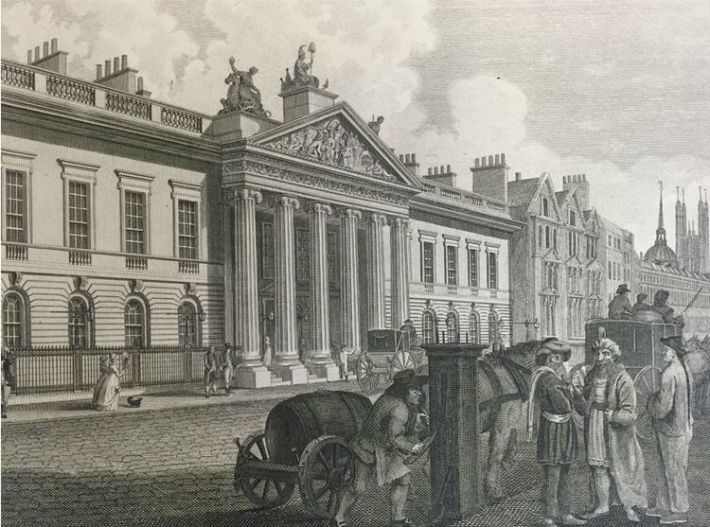
November 15, 2021
12:15 pm
Uris Hall, G08
This project investigates changing patterns of knowledge resource management at the British East India Company. It covers the years between the Company’s takeover of Bengal in 1757 and the loss of its monopoly rights in 1833. At the beginning of the period, the Company generally depended upon individuals for the historical, linguistic, navigational, botanical, medical and other sciences upon which their operations depended. By the end of the period, the Company had taken over the direct management and production of many domains of colonial science. Along the way, the Company would become a key institution of science in London, establishing around 1800 a library, museum and two colleges in Britain. In this talk, I will first give an overview of the changing structure and geography of science under the Company. Out of this overview, the role that the East India Company played in shaping British science becomes clear, as does the debt that the organization of both modern states and modern sciences owe to the corporation as a form of governance. I will then consider the importance of this case for our understanding of the relationship between “state science” (or public science) and “corporate science” (or private science), and the fuzzy historical boundaries between these two orders of access.
Jessica Ratcliff is an Assistant Professor in the Department of Science and Technology Studies at Cornell University. She specializes in social and material approaches to the history of knowledge, with a focus on Britain and its former empire from the 17th through the 19th centuries. She has published or is working on research about Britain, colonial India (especially southern India), and Southeast Asia (especially Java and Singapore), on topics ranging from inventions and patents to positional astronomy to natural history. Professor Ratcliff is especially interested in studying how states and corporations have shaped the history of knowledge, and in the political economy of information. Her first book, The Transit of Venus Enterprise in Victorian Britain explores large-scale astronomical expeditions in the nineteenth century. It reconstructs Britain's attempt to measure the distance to the sun in 1874, and uses this case to show how the Admiralty and its colonial resources were central to the culture and practice of Victorian astronomy. Her current book project, Natural Monopoly: Science and Colonial Capitalism at the East India Company, is about the Honorable East India Company and its role in the growth of science in nineteenth-century Britain. The book traces out in detail the changing intellectual (or cultural-intellectual) property relations at the Company between 1757-1858. Focusing on the history of the Company’s library, museum and colleges in Britain, the project aims to provide an important historical context for broader questions about the relationship between “public” (i.e. state) science and “private” (i.e. corporate) science.
Additional Information
Program
Einaudi Center for International Studies
South Asia Program
Cryptocurrencies Could Lead to Financial Instability, Author Warns

Eswar Prasad, SAP
Eswar Prasad, professor of economics and international trade policy, discusses the potential for cryptocurrencies to lead to financial instability.
Additional Information
Jyoti Mathad

Assistant Professor
Assistant Professor of Medicine and of Obstetrics & Gynecology, Center for Global Health at Weill Cornell Medicine
Geographic Research Area: India, Haiti and South Africa
Teaching/Research Interests: Metabolic and immune changes of pregnancy and how they affect the development of tuberculosis (TB) in TB-endemic countries, the International Maternal, Pediatric, and Adolescent AIDS Clinical Trials network (IMPAACT), and the safety, tolerability and pharmacokinetics of 3HP in pregnant and postpartum women.
Additional Information
End of Physical Currencies Is 'Drawing Near': Economist

Eswar Prasad, SAP
Eswar Prasad, professor of economics, discusses the future of digital currencies.
Additional Information
Lyndsey Deaton: No Place to Play? Studies of How Adolescents Use Public Space in Dispossessed Communities
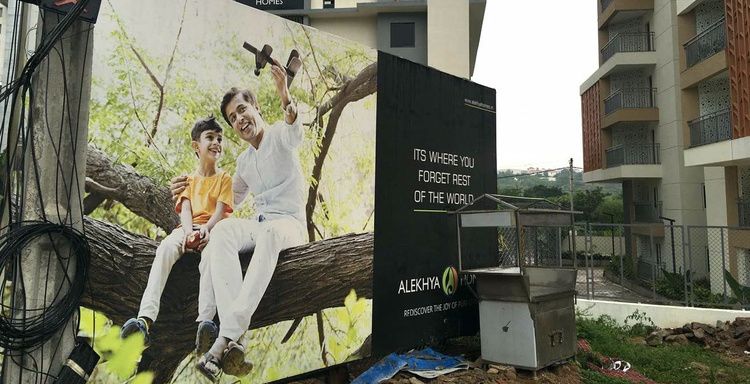
October 29, 2021
12:25 pm
Abby and Howard Milstein Auditorium
Additional Information
Program
Einaudi Center for International Studies
South Asia Program
Southeast Asia Program
Development Diplomacy in South Asia, by Fatema Sumar
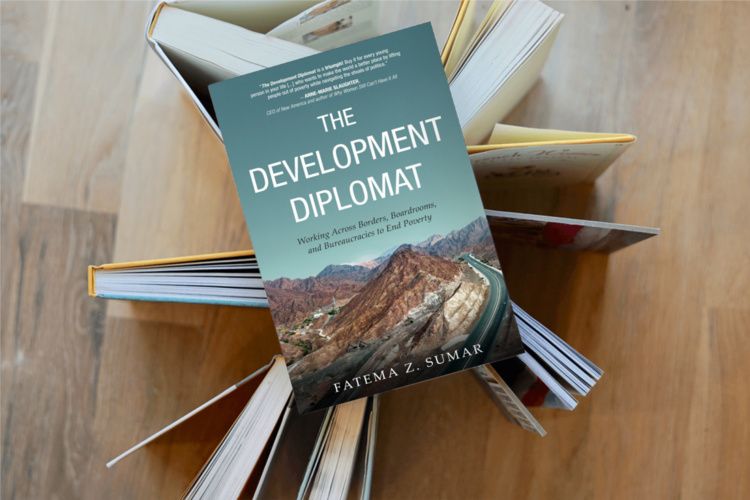
October 20, 2021
4:45 pm
Physical Sciences Building, 401
From both domestic and foreign waters, The Development Diplomat: Working Across Borders, Boardrooms, and Bureaucracies to End Poverty is the story of an immigrant woman who blended skillsets and worked across borders, boardrooms, and bureaucracies to fight global poverty. Many people aspire to “change the world”, but making a difference on a global scale is not easy. When first-generation, Muslim-American Fatema Z. Sumar had the chance to serve across the U.S. government as a diplomat, political aid, and development expert, she seized it. Traveling more than three – quarters of a million miles to dozens of countries, from Afghanistan and Pakistan to Mongolia and Jordan, Fatema worked to fight poverty and create economic opportunities for people around the globe while raising young children at home. Her stories reveal an up-close look at the highs and lows of a career in Development Diplomacy. This book is a must-read for anyone interested in working on foreign policy and international development, laying out the roadmap for the next generation of Development Diplomats.
In this talk, Sumar will focus on the chapters on Afghanistan, sharing her personal stories of traveling there in the 2009 presidential election, during which she helped avoid a constitutional crisis.
Fatema Sumar '01 has had a distinguished career, leading efforts to advance inclusive and sustainable development in emerging markets and fragile countries. In 2021, President Biden appointed Sumar as the Vice President of Compact Operations at the U.S. Millennium Challenge Corporation, an independent U.S. government foreign aid agency that reduces poverty through economic growth. She previously served as the Deputy Assistant Secretary for South and Central Asia at the U.S. Department of State, where she led U.S. efforts to expand regional economic and energy connectivity and as a Presidential Management Fellow (PMF). In Congress, Fatema worked for three US Senators, including as a Senior Professional Staff Member on the U.S. Senate Foreign Relations Committee. She also worked in civil society at Oxfam America and the American Civil Liberties Union.
Sumar sits on Advisory Boards for Princeton, Cornell, and Indiana universities. Her work has been published in the Stanford Social Innovation Review, The New Republic, The Hill, and other outlets. Sumar graduated with a Master of Public Affairs from Princeton University’s School of Public and International Affairs, where she received the prestigious Stokes Award, and a Bachelor of Arts in Government from Cornell University where she founded the Translator Interpreter Program. She studied abroad at the American University in Cairo.
Copies of her book will be available for purchase and signing after the talk.
Additional Information
Program
Einaudi Center for International Studies
South Asia Program
Indigenous Knowledge for Climate Adaptation
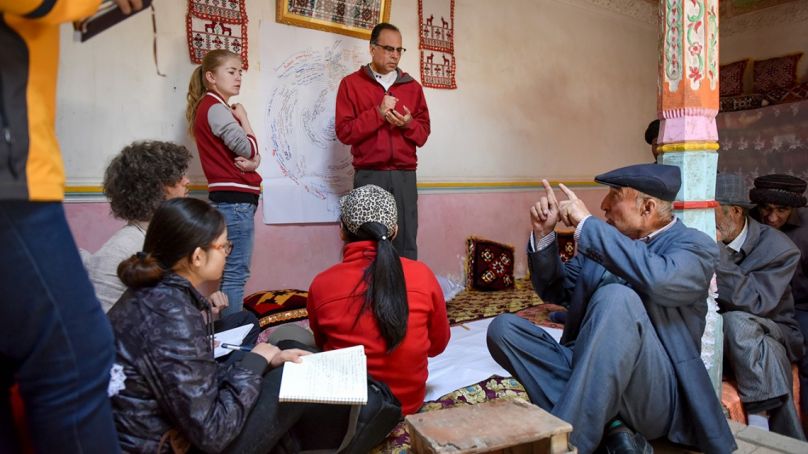
Kassam Develops Climate Calendars
Global Public Voices fellow Karim-Aly Kassam works with Indigenous and rural people to create community-specific ecological calendars.
